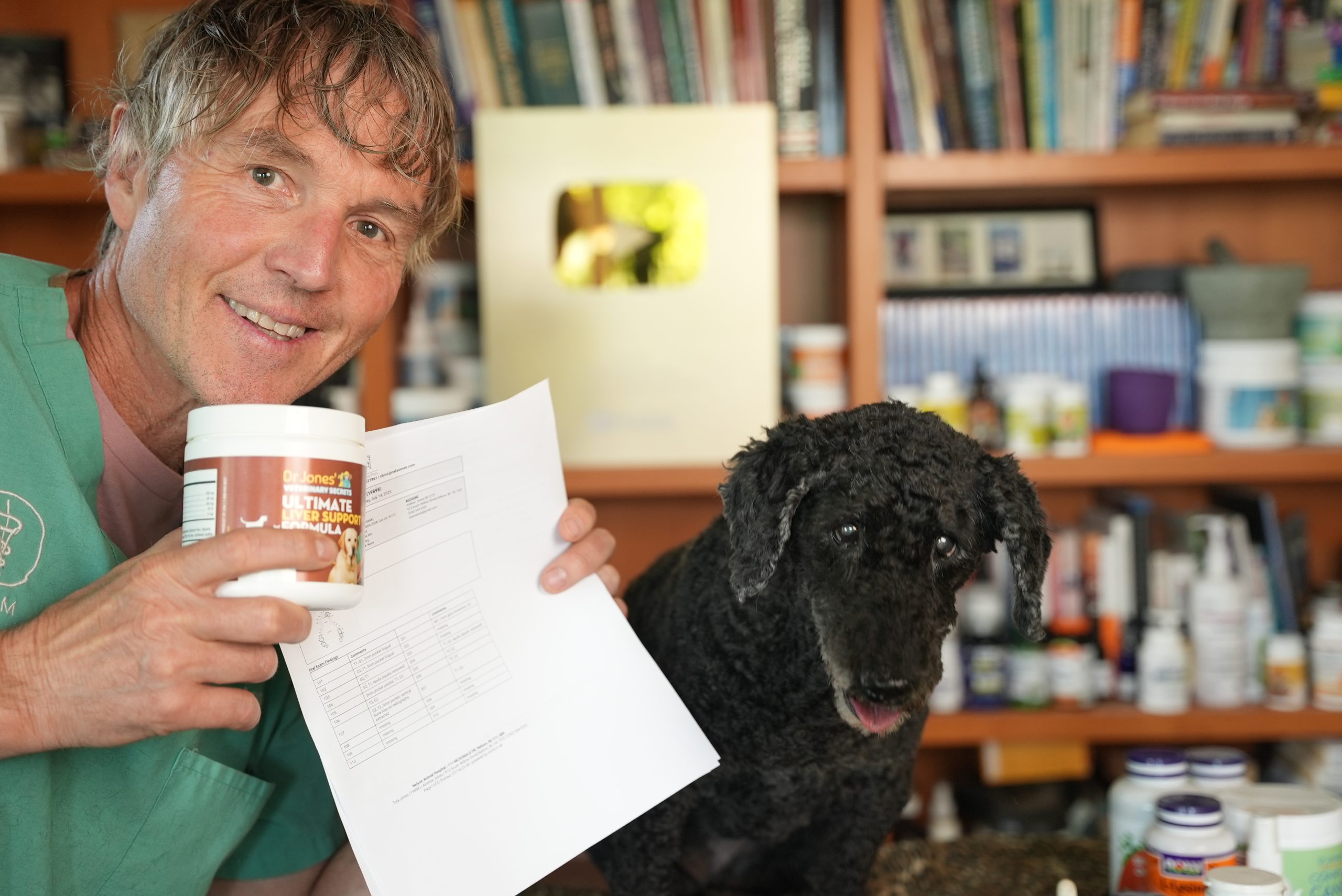Can Your Dog Recover from Liver Disease? Tula’s 7-Month Success Story
![]()

Did Tula Beat Liver Disease? Full 7-Month Health Update Revealed!
A little over a year ago, Tula faced a serious health scare. During a routine dental cleaning, her blood work showed some concerning results—her liver enzymes were through the roof. It was a shock, but we’ve made some significant changes since then, and I’m happy to report that her liver enzymes are now almost back to normal. I want to share with you what I did for Tula and how these changes could help your dog too.
The Discovery of Elevated Liver Enzymes
About a year ago, Tula had a dental scale and polish. But before the procedure, I had pre-surgical blood work done. That’s when we found something alarming: her liver enzyme levels, particularly ALT (Alanine Transaminase), were through the roof—over 10 times higher than normal. ALT is a liver-specific enzyme, so this was a clear sign that something serious was happening with her liver.
The possible causes could have been infection, inflammation, nutrient excess, or even aging—she’s 13 and a half years old. It could have been hepatic lipidosis (fatty liver) or some form of liver scarring. The blood work was worrying enough to consider a potential liver tumor, but Tula was still acting like herself. She was energetic, alert, eating well, and maintaining her usual exercise routine. This didn’t fit the profile of a dog with a severe liver issue.
What Could Have Caused Her Liver Damage?
I started thinking about what could have contributed to her liver problems. After considering various possibilities, I narrowed it down to one treat she loved—liver-based treats. Tula was getting more than the recommended amount for her size. Liver, while nutritious, can be high in vitamin A, and feeding too much can lead to vitamin A toxicity. Additionally, the liver stores copper, which can build up and cause damage if overfed.
I realized that I had been feeding her these treats more often than I should have. So, the first change I made was to stop the liver-based treats entirely.
Changes to Her Diet and Supplements
After eliminating the liver treats, I made a few key adjustments to Tula’s diet:
-
I made sure her food was moderate in protein and fat, focusing on easy-to-digest poultry-based proteins like chicken. This was especially important given her liver condition.
-
Next, I introduced liver-supportive supplements. The most studied supplements for liver health are:
-
Milk Thistle (300 mg/day)
-
SAMe (S-adenosylmethionine) (100 mg/day)
-
Dandelion Root (100 mg/day)
-
These supplements are known to support liver function, reduce inflammation, and protect the liver from further damage. I also added Vitamin E and curcumin (from turmeric), both of which help with liver repair and are powerful antioxidants.
Dr. Jones’ Liver Support Formula
To make things easier, I created a Liver Support Formula specifically for dogs and cats. It includes all the key ingredients: milk thistle, SAMe, dandelion root, vitamin E, and curcumin. Tula has been on this supplement for the last year—she takes two chews a day, and they’ve made a noticeable difference in her health.
The Results: A Healthier Tula
Fast forward to about two weeks ago, and it was time for another dental cleaning and another round of blood work. The results were great! Her ALT levels dropped from 1305 to 349. While still elevated, it’s a significant improvement—especially considering she’s almost 14 years old.
Clinically, Tula is doing fantastic. Her appetite is great, her drinking habits are consistent, and her energy is through the roof. She’s been running up to 20 kilometers and still beats me on the trail. Tula is active, bright, and healthy—just like her old self.
What I Learned and What You Can Do for Your Dog
The key lesson here is that liver disease doesn’t always look like you expect it to. Even with high liver enzymes, Tula showed no clinical signs of illness. After making some dietary changes and adding the right supplements, her liver function improved dramatically.
If your dog or cat has liver disease, I highly recommend a liver-supportive supplement. Make sure it includes milk thistle, SAMe, and dandelion root—these ingredients are essential for liver health. I created my own Dr. Jones’ Ultimate Liver Support Formula for exactly that reason.
As for Tula, she’s thriving. She’s still active, still the same playful pup, and I’m confident that the changes we made have set her on the right path.
Thank you for following Tula’s journey! If you want to learn more about how to support your pet’s liver health, feel free to check out my liver support formula and stay tuned for more tips on keeping your pets healthy and happy.
If you have any questions, leave them below or catch me in my next Veterinary Secrets video.
Click the link to subscribe and stay up to date with all my latest tips for your pet’s well-being.
CLICK TO GET A FREE COPY OF MY E-BOOK!

















My 6.5 month old German Shepherd has had liver issues most of her life. Its functioning properly, but not correctly, if that makes sense? ( Liver enzymes are high. She’s dehydrated despite drinking, bile acid tests came back normal, and all other blood work is normal. She’s done different rounds of antibiotics and has been on Heparo Support, Ove also lowered the fat percentage she gets.) Anyway, I was messing around with a uv light I have last night and noticed that her nose is reacting and turning bright lime green. I’ve been doing my own research and I’m not properly understanding the terms, but I know that it could be connected to her liver and that vets sometimes use a uv light to help find issues? What are your thoughts on that?
Great question and you are clearly paying close attention to her.
That green glow under UV is usually porphyrins natural pigments in saliva and nasal secretions. It can look dramatic but by itself it is not a diagnostic test and does not tell us the liver is failing or damaged. Vets use special dyes and specific tests for liver shunts or bile issues not a simple UV light at home
With a young dog like yours normal bile acids and otherwise normal bloodwork are reassuring. Mild enzyme elevations can come from growth inflammation medications infections or even dehydration just like you mentioned.
Dr. Jones’ focus would stay on what you are already doing supporting hydration a clean lower fat diet and gentle liver support then rechecking labs over time. If enzymes stay high your vet may suggest imaging or repeat bile acids as she matures.
You are doing a great job advocating for her!